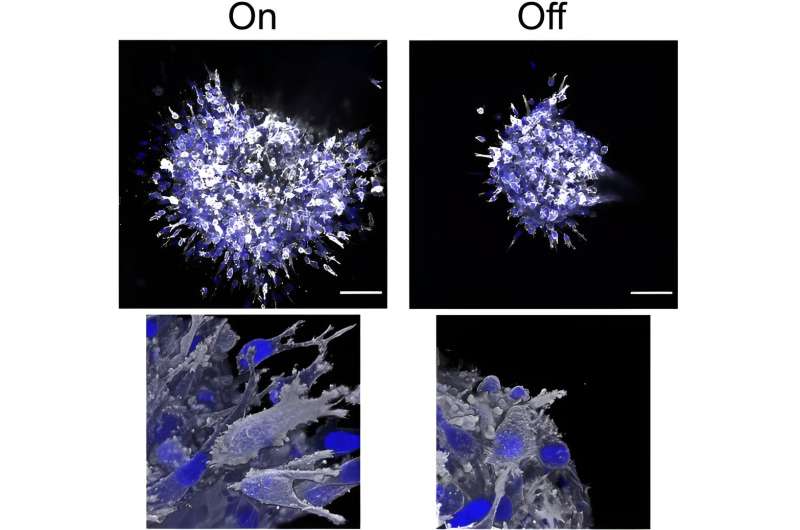This article has been reviewed according to Science X's editorial process and policies. Editors have highlighted the following attributes while ensuring the content's credibility:
fact-checked
trusted source
proofread
Treatment of aggressive breast cancer: Discovery of a new protein involved in the development of metastases

A protein found abundantly in breast cancers that are refractory to conventional treatments is thought to cause the development of metastasis. Targeting it would prevent metastatic spread and therefore increase patients' survival.
These are the findings of a study conducted by a French-American team and led by a biologist at CNRS. The study, the results of which appear in Cell Discovery, aims to better understand the mechanisms at play in the development of primary tumors in aggressive breast cancers into metastases.
Malignant cells are thought to spread thanks to the SMYD2 protein, which diverts the activity of another protein—BCAR3—to the cells' advantage. Known to be partly responsible for the adhesion and migration capacity of metastatic cancer cells, BCAR3 activity is heavily stimulated by SMYD2.
In vitro experiments show that the development of these cells and their ability to migrate and invade surrounding tissues requires the presence and activity of SMYD2.
The team of scientists subsequently attempted to inhibit SMYD2 in mice with primary-stage breast cancer. A comparative analysis of the development of cancer in treated and untreated mice revealed a correlation between SMYD2 inhibition, the blocking of its action on BCAR3 and the absence of metastasis.
These results are a compelling first step toward the development of an early treatment to prevent the development of metastases in breast cancer. Such a preventive treatment would give the medical team more time to identify and implement effective therapy to treat the primary tumor, or to find an alternative for refractory tumors.
More information: Cytoskeleton remodeling induced by SMYD2 methyltransferase drives breast cancer metastasis., Cell Discovery (2024).



















